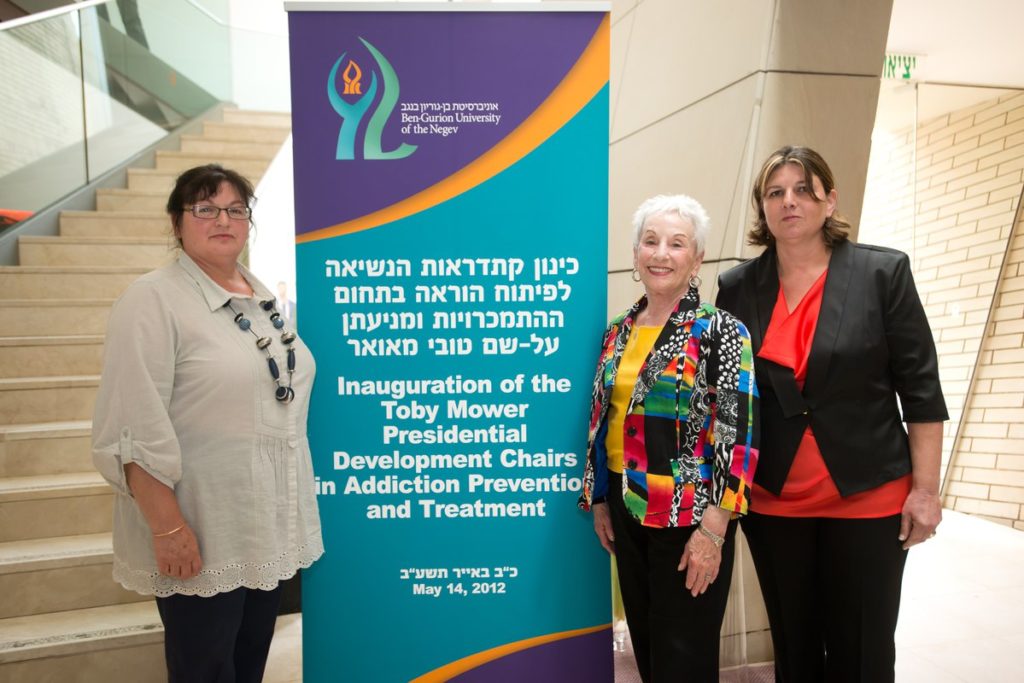
Toby Mower Curriculum Partners with Nurses to Combat Addiction
Toby Mower Curriculum Partners with Nurses to Combat Addiction
December 22, 2015
Miriyam Farkash, R.N., one of two Toby Mower Presidential Development Chairs in Addiction Prevention and Treatment, initiated a multi-faceted agreement with the International Nurses Society on Addictions (IntNSA) to establish an IntNSA chapter in Israel. The new chapter, along with a certification course for nurses working in addiction prevention, will be based at BGU’s Faculty of Health Sciences.
Additionally, Farkash, Dana Murphy-Parker, president of IntNSA, and IntNSA Vice President for International Affairs Carmel Clancey agreed that the Toby Mower Curriculum for the Prevention and Treatment of Addiction would participate in an international study assessing faculty willingness to include addiction prevention, diagnosis and treatment elements in their courses.
The Toby Mower Curriculum, developed in 2011 thanks to a significant donation from philanthropists Toby and Dr. Morton Mower, is a multidisciplinary program that trains nurses and other community health professionals in addressing addictive disorders.

Toby Mower (center) at the inauguration ceremony for the Toby Mower Presidential Development Chairs in Addiction Prevention and Treatment, with Chair Incumbents Miriyam Farkash and Dr. Orli Grinstein-Cohen.
“Addictive disorders including alcohol, drug and other dependencies, as well as dependencies on prescription drugs, nicotine and gambling are actually increasing in our time,” says Farkash, “and new kinds of dependencies, such as dependencies on smartphones and other technologies are emerging.”
The program and partnership with IntNSA is groundbreaking in Israel, where educational resources on topics related to addiction are often limited, piecemeal and not well-integrated into clinical practice.
“Due to addiction-related health consequences and their prevalence,” Farkash says, “there is a need to connect clinicians and managers with educators and researchers in order to develop strategies and education programs in the treatment and rehabilitation of people with addictive disorders.
“Establishing an IntNSA chapter in Israel will facilitate this process and position BGU as a leader in the field,” Farkash adds.
Fifty first-year Faculty of Health Sciences students are currently enrolled in a new course taught by experts in addiction treatment approaches, such as the 12-Step Program, cognitive-behavioral therapy and motivational interviewing.
In addition, the Toby Mower Curriculum recently hosted a day-long workshop for nursing department lecturers to train them in techniques for diagnosing addiction-caused behavioral changes, and how to integrate those teachings into their clinical instruction courses.



